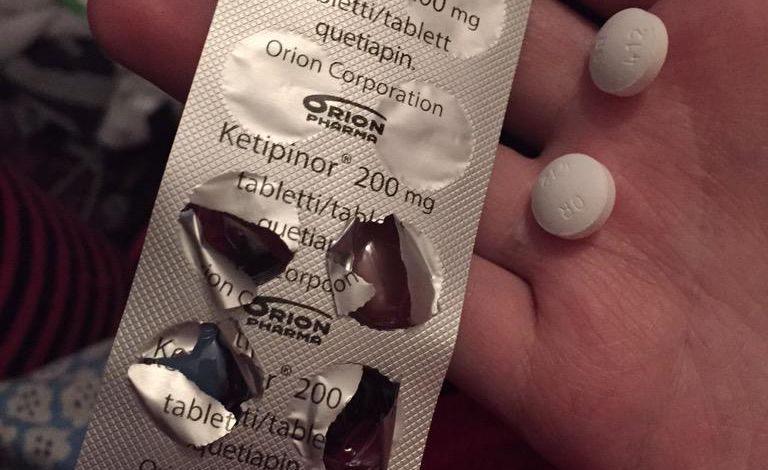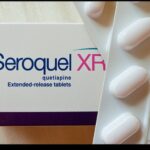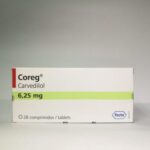What To Do If You Accidentally Took Double Dose Of Seroquel (Quetiapine)?

What is Seroquel?
Seroquel is an antipsychotic medicine that contains the active ingredient quetiapine. It is used for the treatment of schizophrenia (a mental illness that causes disturbed or unusual thinking, loss of interest in life, and strong or inappropriate emotions).
Seroquel tablets and extended-release tablets are also used alone or with other medications to treat episodes of mania (frenzied, abnormally excited, or irritated mood) or depression in patients with bipolar disorder (manic depressive disorder; a disease that causes episodes of depression, episodes of mania, and other abnormal moods).
In addition, Seroquel tablets and extended-release tablets are used with other medications to prevent episodes of mania or depression in patients with bipolar disorder. Seroquel extended-release tablets are also used along with other medications to treat depression. Seroquel tablets may be used as part of a treatment program to treat bipolar disorder and schizophrenia in children and teenagers.
Quetiapine hasn’t been approved by the Food and Drug Administration (FDA) to treat insomnia. However, due to its sedative effects, it’s still sometimes prescribed off-label as a short-term sleep aid.
Although it’s difficult to pinpoint exactly how often quetiapine is prescribed for insomnia and related sleep disorders, research suggests that it’s prescribed fairly often.
How it works
Seroquel belongs to a class of drugs called atypical antipsychotics. A class of drugs is a group of medications that work in a similar way. These drugs are often used to treat similar conditions.
It isn’t known exactly how this drug works. However, it’s thought that it helps regulate the number of certain chemicals (dopamine and serotonin) in your brain to control your condition.
How should Seroquel be used?
Seroquel comes as a tablet and as an extended-release tablet to take by mouth. The tablets are usually taken one to three times a day with or without food. The extended-release tablets are usually taken once a day in the evening without food or with a light meal.
Typical dosing for quetiapine (Seroquel)
Schizophrenia: Dose will be adjusted as needed by the provider.
Immediate-release
- Adults: The typical starting dose is 25 mg by mouth twice daily. The maximum dose is 750 mg per day.
- Children (age 13 to 17): The typical starting dose is 25 mg by mouth twice daily. The maximum dose is 800 mg per day.
Extended-release
- Adults: The typical starting dose is 300 mg by mouth every day in the evening. The maximum dose is 800 mg per day.
- Children (age 13 to 17): The typical starting dose is 50 mg by mouth every day in the evening. The maximum dose is 800 mg per day.
Bipolar disorder (mania): The dose will be adjusted as needed by the provider.
Immediate-release
- Adults: The typical starting dose is 50 mg by mouth twice daily. The maximum dose is 800 mg per day.
- Children (age 10 to 17): The typical starting dose is 25 mg by mouth twice daily. The maximum dose is 600 mg per day.
Extended-release
- Adults: The typical starting dose is 300 mg by mouth every day in the evening. The maximum dose is 800 mg per day.
- Children (age 10 to 17): The typical starting dose is 50 mg by mouth every day in the evening. The maximum dose is 600 mg per day.
Bipolar disorder (depression): The dose will be adjusted as needed by the provider.
Immediate-release
- Adults: The typical starting dose is 50 mg by mouth once daily at bedtime. The maximum dose is 300 mg per day.
Extended-release
- Adults: The typical starting dose is 50 mg by mouth once daily in the evening. The maximum dose is 300 mg per day.
Depression (when used with another antidepressant): Dose will be adjusted as needed by the provider.
Extended-release
- Adults: The typical starting dose is 50 mg by mouth once daily in the evening. The maximum dose is 300 mg per day.
Take Seroquel at around the same time(s) every day. Follow the directions on your prescription label carefully, and ask your doctor or pharmacist to explain any part you do not understand. Take quetiapine exactly as directed. Do not take more or less of it or take it more often than prescribed by your doctor.
Swallow Seroquel extended-release tablets whole; do not split, chew, or crush them.
Your doctor will probably start you on a low dose of quetiapine and gradually increase your dose during the first week of your treatment. Ask your doctor or pharmacist if you have any questions about the amount of medication you should take each day at the beginning of your treatment.
If you do not take Seroquel for one week or longer, you should call your doctor before you start taking the medication again. Your doctor will probably tell you to start taking a low dose of the medication and gradually increase your dose as you did when you first started taking quetiapine.
Seroquel may help control your symptoms but will not cure your condition. Continue to take quetiapine even if you feel well. Do not stop taking quetiapine without talking to your doctor. If you suddenly stop taking quetiapine, you may experience withdrawal symptoms such as nausea, vomiting, and difficulty falling asleep or staying asleep. Your doctor will probably want to decrease your dose gradually.
What to do when you accidentally take a double dose of Seroquel?
Accidentally taking a double dose of Seroquel can be dangerous because the maximum dose of Seroquel across diagnostic indications is 800 mg/day; in mood disorders.
Taking are double dose of Seroquel can cause hypotension, tachycardia, and somnolence. Potentially life-threatening consequences from Seroquel overdose include QT prolongation and respiratory depression
In case of Seroquel overdose, call the poison control helpline at 1-800-222-1222. Information is also available online at https://www.poisonhelp.org/help. If the victim has collapsed, had a seizure, has trouble breathing, or can’t be awakened, immediately call emergency services at 911.
Symptoms of Seroquel overdose may include the following:
• drowsiness
• dizziness
• fainting
• fast heartbeat
Can you drink alcohol while taking Seroquel?
No, avoid alcohol and alcoholic products while taking Seroquel because alcohol can affect how Seroquel works and its ability to treat the individual’s symptoms.
Seroquel side effects
Along with its therapeutic effects, Seroquel can sometimes cause side effects. Some side effects will have symptoms that you can see or feel. Your doctor may watch for others, such as changes in the lenses of the eyes, by doing certain tests.
Check with your doctor if any of the following common side effects don’t go away or are bothersome:
• Abdominal pain
• Abnormal vision
• Constipation
• Decrease in appetite
• Decreased strength and energy
• Dizziness
• Drowsiness
• Dry mouth
• Fast or irregular heartbeat
• Headache
• Increased muscle tone
• Increased sweating
• Indigestion
• Lightheadedness, or fainting, especially when getting up from a lying or sitting position
• Stuffy or runny nose
Serious Side Effects
In some cases, more serious side effects may occur. Some of these include:
• Increased risk of death due to dementia-related psychosis
• Increased risk of suicidal thoughts
• Potential serious weight loss or weight gain
Seroquel can increase the amount of a hormone called prolactin. In some cases, this may interrupt menstruation or breastfeeding. It can also cause decreased sex drive and erectile dysfunction. Long-term exposure to elevated prolactin levels can increase the risk for osteoporosis and bone fractures.





